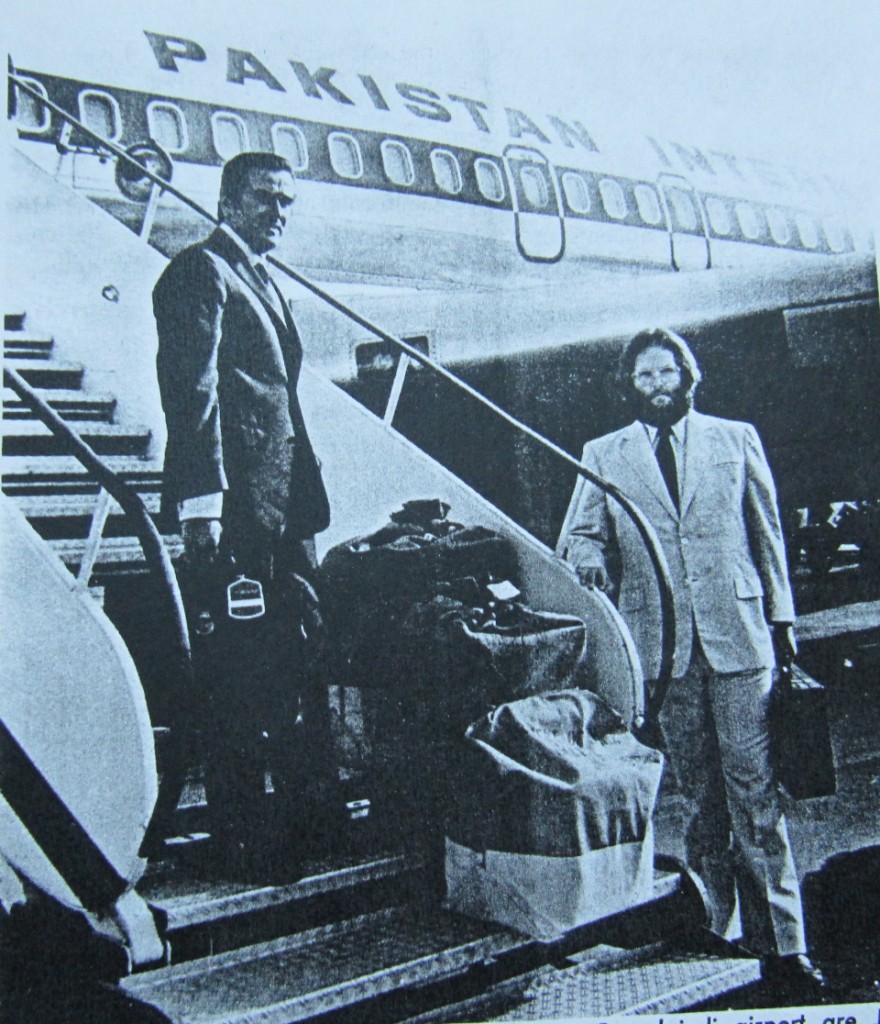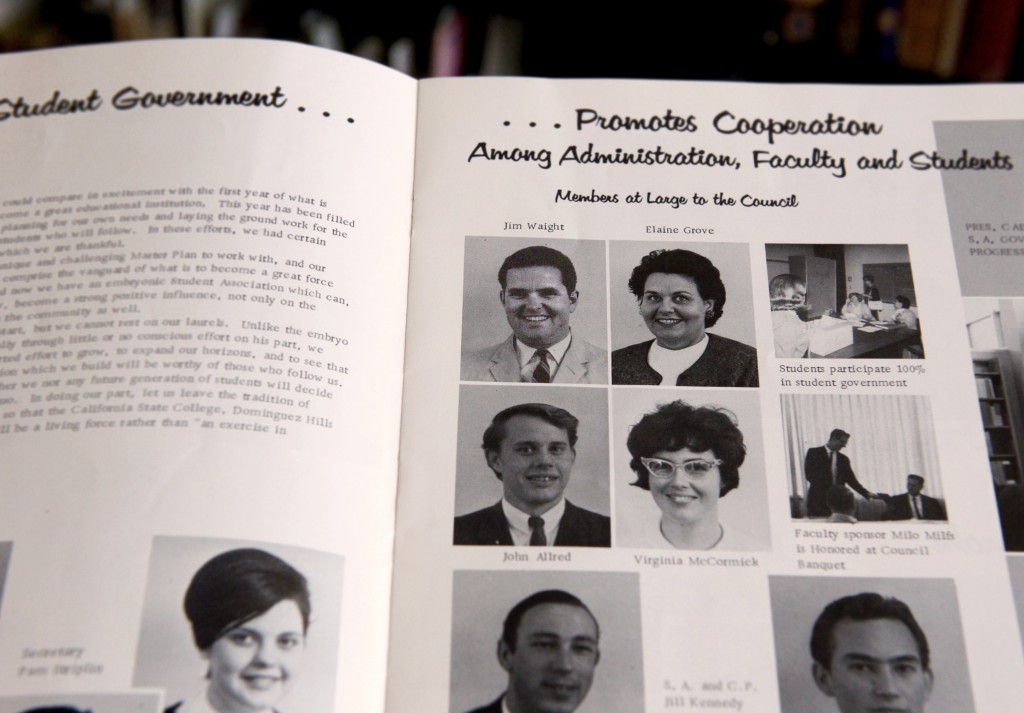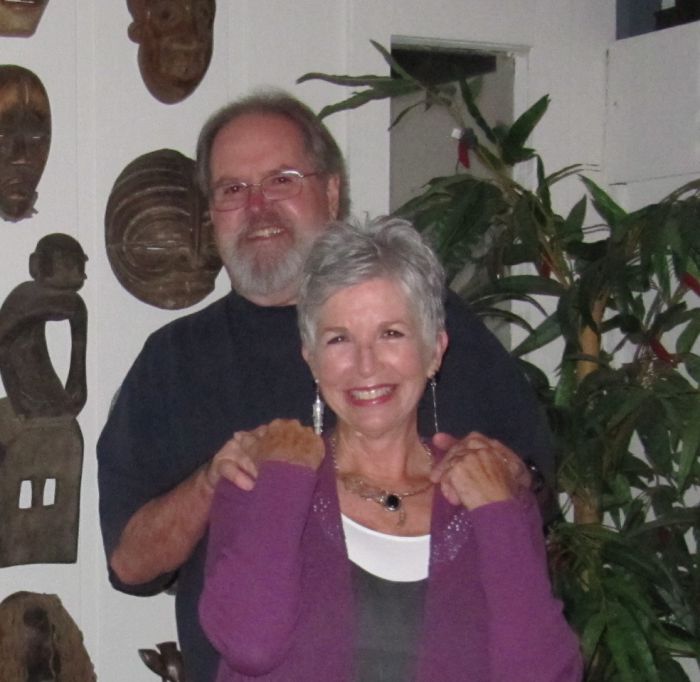Dashing young agent with top-secret clearance ferries confidential materials on international missions, lands in a few tight spots, and in the end gets the girl.
An elevator pitch for a James Bond movie? No, but in many ways, it’s better. In a nutshell, it was the life of James Waight (Class of ’68, B.A., history/American studies) as a diplomatic courier for the U.S. Department of State.
Unlike the famous fictional Brit, Waight doesn’t have the status: Secret service agent 007. However, he may very well be student 007. In 1965, he was among just 14 fellow juniors and 27 freshmen to attend the inaugural term at what would later become California State University, Dominguez Hills.

In true agent style, and for his safety, Waight never knew exactly what he was ferrying.
As the Vietnam war was winding down in 1975, he was the last diplomatic courier to visit embattled Phnom Penh, Cambodia; Vientiane, Laos; and Saigon (now Ho Chi Minh City), Vietnam.
“When all the embassies were being evacuated and people were getting out of there, I was going in to take classified material out of the country,” Waight said of Vietnam. “There were a few wars that I happened to get myself in the middle of.”
A continent away from Asia, one such war broke out in 1979 as he landed in the Republic of Chad, Africa.
“I get off the plane and didn’t understand why no one was there at the airport to meet me. In fact, there was nobody there, period; immigrations or customs. And the plane I had come in on, they just turned around and took off. I’m standing there with these six big diplomatic bags, wondering where everybody is,” Waight recounted. “All of a sudden a guy pulls up and says, ‘throw your stuff in here. War has just broken out.’”
Together they fled to the man’s house where a group of women and children had congregated to celebrate a birthday. Trapped there for six days, the two men held vigil.
“He and I stayed up all night. Both of us had an AK-47 and a bottle of scotch,” Waight recalled.
Although there was plenty of shooting going on, Waight said the soldiers were only attacking each other. Nevertheless, when the French Foreign Legion came in from the Djibouti, Africa, to secure the airport, he and a group of 61 women and children were flown to safety in Cameroon, Central Africa.
On a friendlier note, in 1973, after President Richard Nixon’s historic visit to China, Waight was the first diplomatic courier to visit Beijing in nearly 25 years–the U.S. mission there had closed in 1948 when the communists were taking over the country.
“It was right in the middle of the cultural revolution, so there was all this craziness going on, everyone waving their little red books and marching around,” Waight recollected. “It was a great time to travel.”
In those days, anywhere he traveled, Americans were highly regarded and he was well received.
“I knew these places when they were wonderful,” he said. “These were places that were in some ways like home to me.”
His bent for adventure developed long before he joined the courier service in 1968, though.
Having grown up in Wilmington and graduating from Banning High School, and with one semester under his belt at Los Angeles Harbor College, a restless 18-year-old Waight had a chance encounter that would set into motion the first phase of his adult adventures. A friend of a friend shared slides of his Army tour in Europe, including such things as skiing down the Matterhorn and floating down a canal in Venice.
Waight recalled asking the veteran, “The Army let you do this stuff?” Learning that the U.S. Army allowed a month of vacation time a year to go anywhere a military plane could travel was all it took.
“I decided, if I hung around Wilmington I was going to be stuck there for my life, so I joined the Army,” Waight said.

Nearly four years after joining the Army in 1958, he returned home to resume his education at L.A. Harbor College. As a junior in 1965 he transferred to a brand new school–California State College at Palos Verdes (what would become CSU Dominguez Hills), located in the old California Federal Savings Bank building situated above Marineland and the Pacific Ocean.
“I heard about this new school up in Palos Verdes. I thought, ‘This would be cool.’ We started with maybe 15 juniors, about 30 freshmen,” Waight remembered. “It was wonderful. It was a good education. The largest class I had, I think had maybe about six or seven people in it. There was no sitting in the back row and having a nap or anything.”
When the campus moved to Dominguez Hills (across the street from its current location) in 1966 and was renamed California State College, Dominguez Hills, Waight moved with it.
He remembers being on a first-name basis with everyone, even Leo Cain, who was university president at the time. Cain also happened to be the instructor for the psychology class that Waight was in. And with CSC Dominguez Hills the first campus in the CSC system (now the CSU system) to go on the quarter system, coursework at the young college was rigorous.
“The instructors were used to 20 weeks. So they were squeezing 20 weeks worth of material into 12 weeks,” Waight recalled.
Although he was slated to graduate with the fledgling university’s first graduating class in 1967, he had a few outstanding units he needed to complete. He learned of an opportunity to study at the Universidad de las Americas in Mexico City. Ever the adventurer, he enrolled there, and graduated from CSC Dominguez Hills in absentia in 1968 with a bachelor’s in history and American studies.
“I came back here and I didn’t have the slightest idea of what I wanted to do,” Waight said.
However, while in Mexico he had a second chance meeting. A man he had served with in the Army was by then working as an officer at a U.S embassy. Waight’s former Army mate said he had to go out and meet a diplomatic courier.
Once again, Waight had a general question that would lead him to years-long adventure. He recalled asking, “What does a diplomatic courier do?” The answer, traveling around the world around picking up and delivering materials, sounded like a good job for a bachelor, so while still in Mexico City, he applied for a courier position with the U.S. Department of State. After a year and a half his background check was complete and someone from the courier service called and asked him if he could be in Washington, D.C. in three days.
At 28, in an office job he hated, he jumped at the chance. A week after arriving, he shipped out to Frankfurt to begin the first of many adventures.
“I found my calling. It wasn’t a job, it was a calling,” Waight declared.
Just shy of 30 years and with well over 10 million air miles traveled, only an injury could stop him. He ruptured three cervical discs during an evacuation of the U. S. embassy in Monrovia, Liberia, so he retired in 1997 at age 57 to Virginia.
Oh, and about the girl–and it wasn’t just any girl. After 26 years, Waight reunited with his California State College Palos Verdes sweetheart, Judy Brown.

“I was the one she had never forgotten. She was the one I had never forgotten,” Waight reminisced.
Although he immediately fell head over heels in love with the freshman back in college, they had gone their separate ways in 1967.
“In July of 1994 she called my dad in Wilmington and wanted to know where I was. And my dad ratted me out,” Waight recalled with a chuckle.
The following year, CSU Dominguez Hills was celebrating the 25th anniversary of its establishment. Waight answered a letter from emeritus history professor Judson Granier, who was at the time still a professor of history at CSU Dominguez Hills and was compiling information for the celebration. In the letter Granier asked, “What have you done with your life?”
“Well, I’m marrying Judy Brown,” Waight recalled answering.
While marrying his college sweetheart may be the highlight of his life, he has also done a world more.